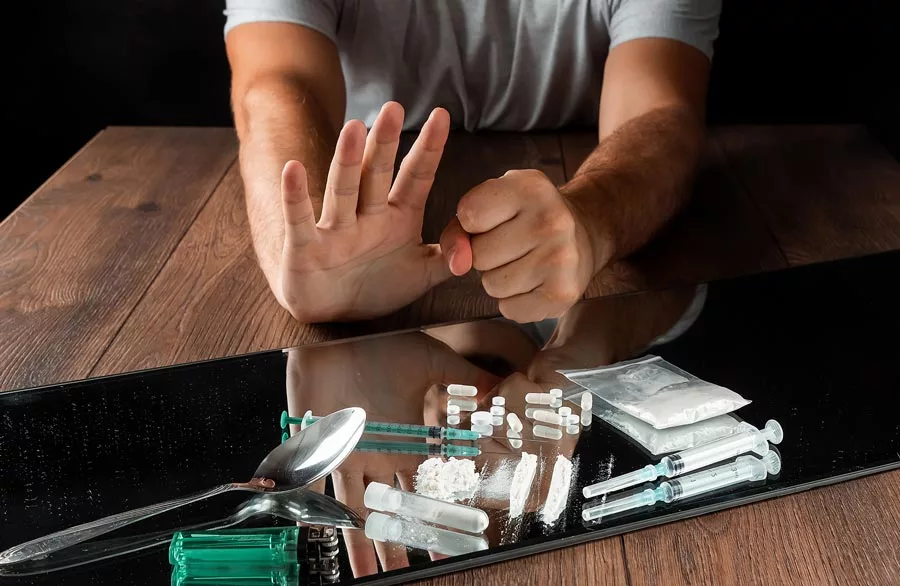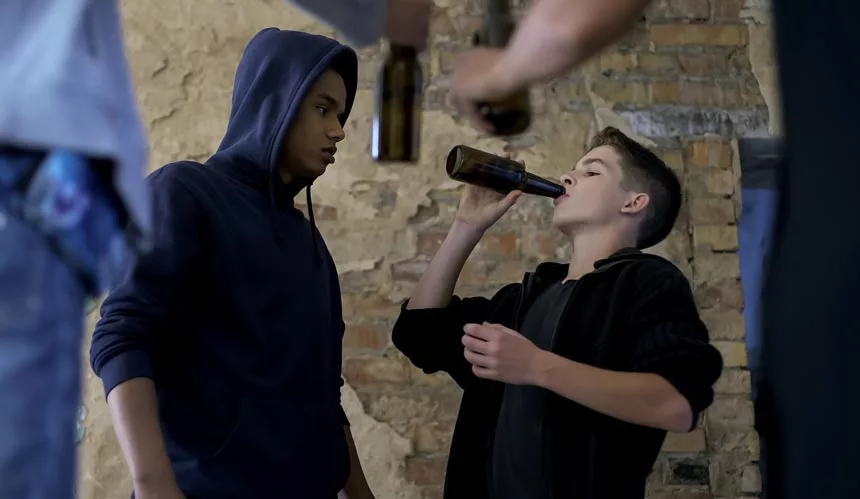Rehab is often thought of as a voluntary activity, but that doesn’t mean that it has to be voluntary. Sometimes the court or other legal representatives may consider forcing someone to go to rehab because it’s what’s best for them. The person sentenced to rehab this way might not have believed it otherwise.
In other states, it’s illegal for someone to send someone to recovery without their consent. Depending on the locale, you might not be able to legally put someone into rehab who doesn’t want to go. The real question shouldn’t be if you could force someone into rehab, but rather if you should.
In some cases, a person might become self-destructive because of their addiction. They may not even see that as a problem and won’t accept that they are addicted. Putting someone in rehab forcibly should be a last resort, but even so, you should be aware of whether it’s legal to do so.
What Are Requirements for Arizona Drug Court?
In Arizona, a person can enter Drug Court if the state deems that they’ve met the requisite requirements. With Drug Court, a person is mandated to attend status hearings so the state can be updated on their progress. The attendee will have to sign a contract that outlines what goals they agree to meet during their recovery at each court date. The program runs for one year, and a person must complete all the goals set forth by the court to “graduate” the program. To be eligible for Arizona Drug Court, a person must have the following:
- Drug-related felonies that are eligible for probation within the previous two years
- Has a score of medium-high or high risk on the OST/FROST and spiked more than 67% on the drug domain
- Has a history of substance abuse that’s severe to moderate
- Must reside within the supervision area for the Drug Court
This state-mandated treatment is involuntary, and a person committed needs to complete it before being discharged.
How Effective Is Court Mandated Treatment?

One of the most common questions is whether court-mandated or involuntary treatment is effective. The research on this topic is limited, and there’s not much to go on. Statistics show us that almost one-third of all patients admitted to rehab programs in 2013-2014 was through involuntary methods such as court-mandated rehab.
Based on the number of people who recovered because of the court-mandated rehab, it seems that the process does work. Individuals who are coerced into rehab programs tend to do better and stay longer, completing their course of treatment. While the data is still uncertain, the results are promising based on what we know.
What Are Involuntary Commitment Laws in Arizona?
Forcing someone into rehab through involuntary commitment usually means relying on the law to do so. If the person you intend to commit to rehab is a minor, the court might not be willing to do so. They will commit a minor if there is enough evidence that the person has a substance use disorder and may have attempted to harm themselves in the past. The same goes for a non-minor, although the court is more willing to look at involuntary commitment in those cases.
One of the most compelling arguments for involuntary commitment is the inability to function. If a person is so addicted to a substance that they can’t take care of themselves, the court is likely to force them into rehab. The person will be appointed a lawyer to argue their case at a hearing. However, in many cases, they may also think that the person may need to go to rehab.
Dual Diagnosis Treatment for Mental Health Disorders

Dual diagnosis occurs when a person has both a substance use disorder and a mental health disorder. In the past, these disorders weren’t treated together, but it was found that a dual diagnosis treatment must be used for proper recovery from addiction to occur. When a person is admitted to a rehab center, they will have to go through an evaluation that helps the facility determine whether they are a candidate for dual diagnosis or not.
Dual diagnosis combines treatments to give the most effective outcome for individuals who have both a mental health disorder like anxiety or depression and substance use disorder. Sometimes, the mental health condition leads to addiction.
Who Pays For Court Ordered Rehab?
In most cases of court-ordered rehab, the weight of payment rests on the shoulders of the plaintiff. It’s a common misunderstanding that the state will pay for involuntary commitment to a rehab center. The state is never responsible for paying for a plaintiff’s rehab.
If it’s not the state that brought the request for commitment, the circumstances of payment change. In these cases, the person who put the person forward to be committed involuntarily is responsible for paying for their treatment. This rule only applies in states that have passed “Casey’s Law” (Ohio and Kentucky). Indiana has “Jennifer’s Act,” which performs the same function.
What Are Some Ways To Convince Someone To Go To Rehab?

Convincing someone to go to rehab might be quite hard. However, doing so ensures that they are also on board with overcoming their condition. Compelling someone to go to rehab requires them to admit they have a problem and wanting to get help for it. In some cases, families might try intervention to get their loved ones aware of the hurt that their addiction may be causing others within the family. Professional interventions may not work, however.
When someone is dealing with addiction, their brain may not be in the proper frame to make the right decision. As a result, they might not agree to enter rehab, leaving you with few options aside from an involuntary commitment to a rehab facility.
Establishing Motivation for Sobriety in Court Ordered Rehab
The most crucial part of overcoming addiction is setting up a motivation for sobriety. Why should a person want to get sober when they enjoy using the drug? Usually, the reason for sobriety for voluntary patients is the need to recover their lives. Addiction can cause severe economic and social damage to a person who has to work through it.
Many of these people remember life before their addiction and want to get back to that point. Their urges challenge this motivation, but a rehab facility can give them the tools to deal with it.

For involuntary addiction, the approach is somewhat different. A person who is checked into a rehab center against their will might not want anything to do with the process. However, these cases can be resolved by helping the person understand the point of view of others.
When a person starts to accept that they have a problem and decide to change their circumstances, rehab can help them overcome their addiction. While a person might enter rehab being against recovery, they’re more likely to want to finish the treatment once they realize the benefits it offers them in the real world.
Make Treatment Attractive: Presenting Best Rehabs In Arizona Recovery
To convince a reluctant person, it helps to make treatment attractive. At Best Rehabs In Arizona Recovery, that’s what our staff always aim to do. We provide amenities and therapy for all of our clients that cater to their specific needs.
Our team is personable and approachable, making it easier to discuss addiction and come to terms with it. If you have a loved one that needs that special attention and care, give us a call today. We’re more than glad to facilitate you and help your loved ones get the care they need.









 Outside circumstances vary drastically, but internally most addicts, including myself, have similar experiences although it can often feel like they’re the only one.
Outside circumstances vary drastically, but internally most addicts, including myself, have similar experiences although it can often feel like they’re the only one. As time goes on our tolerance for the substances gets greater. Leaving us needing more of our drug of choice in order to become intoxicated. So, what does any motivated addict do at this point?
As time goes on our tolerance for the substances gets greater. Leaving us needing more of our drug of choice in order to become intoxicated. So, what does any motivated addict do at this point?

 A good group of peers is so imperative during the recovery process, people that we can trust and stay committed to. Not to mention people to enjoy life and have sober fun with. We call this having an “A-Team” and it will save your life time and time again. Make sure you choose your A-Team wisely and be sure to stick with the winners. If you don’t know anyone sober outside of treatment, or if you have a fear of meeting new people, don’t worry we were all there once. We recommend looking into your local intergroup and attending, 12-step meetings, group and individual therapy. There you find a bountiful amount of sober people that will be willing to help you anyway that they can. A solid, safe support system can be the difference between sobriety and relapse.
A good group of peers is so imperative during the recovery process, people that we can trust and stay committed to. Not to mention people to enjoy life and have sober fun with. We call this having an “A-Team” and it will save your life time and time again. Make sure you choose your A-Team wisely and be sure to stick with the winners. If you don’t know anyone sober outside of treatment, or if you have a fear of meeting new people, don’t worry we were all there once. We recommend looking into your local intergroup and attending, 12-step meetings, group and individual therapy. There you find a bountiful amount of sober people that will be willing to help you anyway that they can. A solid, safe support system can be the difference between sobriety and relapse.